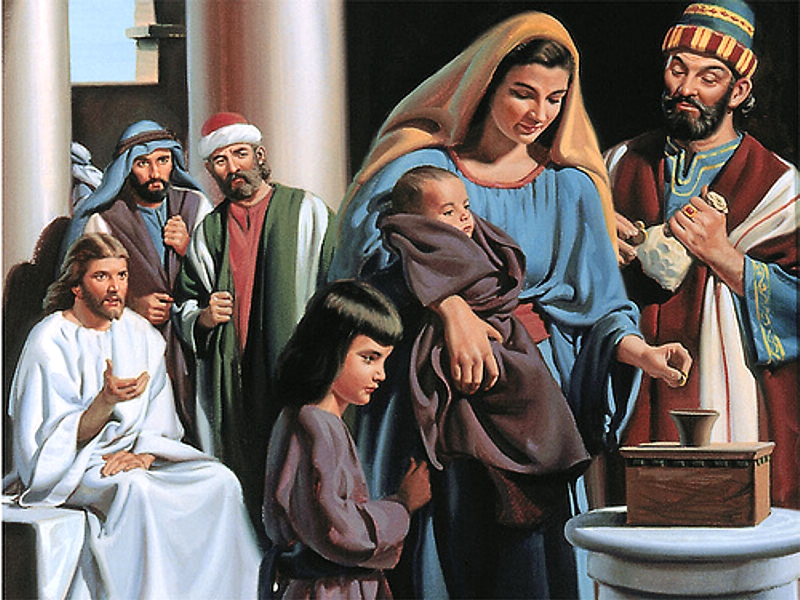
THE GREAT COMMANDMENT.
"BUT when the Pharisees had heard that he had put the Sadducees to silence, they were gathered together.
Then one of them, which was a lawyer, asked him a question, tempting him, and saying, Master, which is the great commandment in the law? Jesus said unto him, Thou shalt love the Lord thy God with all thy heart, and with all thy soul, and with all thy mind.
This is the first and great commandment. And the second is like unto it, Thou shalt love thy neighbor as thyself. On these two commandments hang all the law and the prophets."
"And the scribe said unto him, Well, Master, thou hast said the truth; for there is one God; and there is none other but he: and to love him with all the heart, and with all the understanding, and with all the soul, and with all the strength, and to love his neighbor as himself, is more than all whole burnt offerings and sacrifices. And when Jesus saw that he answered discreetly, he said unto him, Thou art not far from the kingdom of God."
"While the Pharisees were gathered together, Jesus asked them, saying, What think ye of Christ? Whose son is he? They say unto him, The son of David. He saith unto them, How then doth David in spirit call him Lord, saying, The LORD said unto my Lord, Sit thou on my right hand, till I make thine enemies thy footstool? If David then call him Lord, how is he his son? And no man was able to answer him a word, neither durst any man from that day forth ask him any more questions."
"Then spake Jesus to the multitude, and to his disciples, saying, The scribes and the Pharisees sit in Moses' seat: all therefore whatsoever they bid you observe, that observe and do; but do not ye after their works; for they say, and do not." He also warned his disciples against the vainglorious spirit of the Pharisees, and others, saying, "Beware of the smiles, who desire to walk in long robes, and love greetings in the markets, and the highest seats in the synagogues, and the chief rooms at feasts; who devour widows' houses, and for a show make long prayers: the same shall receive greater damnation."
"And Jesus sat over against the treasury, and beheld how the people cast money into the treasury: and many that were rich cast in much. And there came a certain poor widow, and she threw in two mites, which make a farthing. And he called unto him his disciples, and saith unto them, Verily I say unto you, That this poor widow hath cast more in, than all they which have cast into the treasury; for all they did cast in of their abundance, but she of her want did cast in all that she had, even all her living."
The instruction brought out in this and the two preceding lessons are supposed to have been given by our Lord on Tuesday, the third day of his last week, -sometimes called the "holy week." On the preceding Friday, just before the Sabbath began, he had come to Bethany. It will be remembered that he was on his way from Jericho up to Jerusalem. At Bethany, in the house of one Simon, he remained over the Sabbath. It was on this occasion that Lazarus sat at meat with him, Martha served, or waited on the table, and Mary anointed his feet with the precious ointment. On Sunday he made his triumphal entry into Jerusalem, and returned at night to Bethany. On Monday, he cursed the fig tree, as he was on his way to Jerusalem; and on arriving there he drove from the temple the sordid traders and haughty rulers, who had polluted it. Tuesday morning, while going from Bethany up to the holy city, the disciples noticed that the fig tree, which Jesus had cursed was withered. During the day, he gave parables, answered questions, rebuked the wicked scribes and Pharisees, and taught the waiting people, as already noticed.